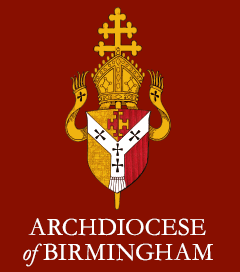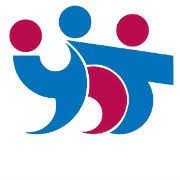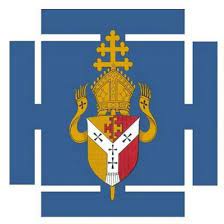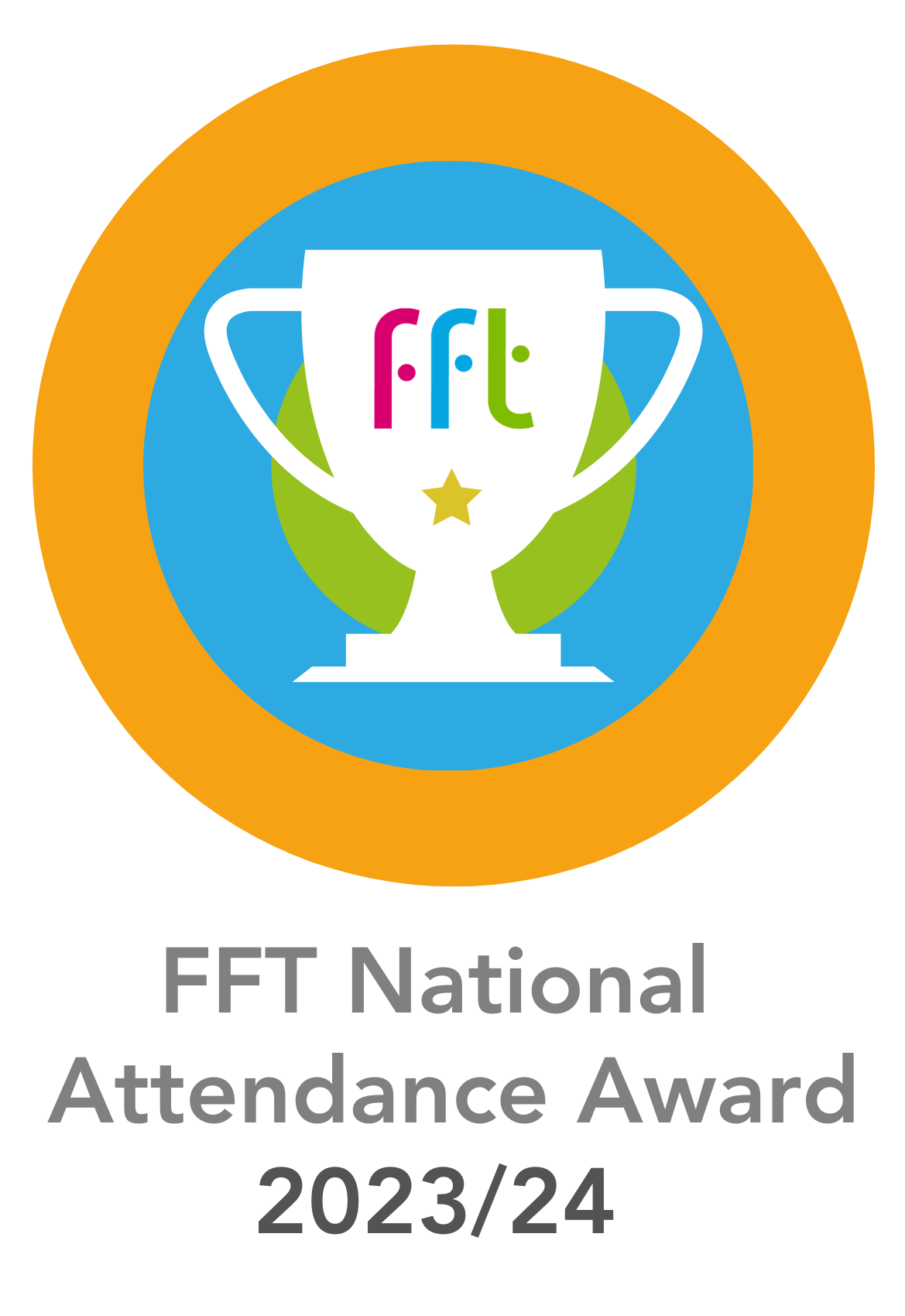RE
The R. E. Department plays a key pastoral and academic role in the school. Religious Studies is an important part of the Catholic school's curriculum and is to be approached in an enthusiastic and challenging way which allows for individual expression and develops the knowledge and necessary skills for a mature Christian life. In so doing it also hopes to serve the needs of the wider Christian community and society at large.
In accordance with the school Mission Statement the R. E. department endeavours to tackle the dual aim of educating the individual in faith and promoting the individuals faith to the local Church community. This is done by the programme of study; the way in which we teach; the provision of opportunities for prayer and worship; the links with the local parochial communities in prayer, worship and pastoral activities; the forming of links with the local clergy; and the celebration of the sacraments, particularly Reconciliation and the Eucharist.
THE DEPARTMENT
The R.E. Department at BGN consists of five qualified teachers who are subject specialists and one teaching assistant who work together, sharing a common vision and faith, to achieve agreed objectives.
- We have a variety of gifts, talents, backgrounds and skills which we employ to the advantage of students and the department as a whole; students learn through a variety of teaching styles and are stimulated by the range of interests and breadth of experience each teacher brings to the subject.
- The department is well organised and runs smoothly. This is particularly in evidence in the preparation and celebration of whole school liturgical events; we all know what to do and what each other is doing, whether in or outside the classroom. Each member of the department is approachable and supportive of each other.
- Results at GCSE are good and above the national average. This is reflected in the numbers who take up the subject at AS and A Level. KS3 schemes of work have been revised with increased emphasis on: extended writing tasks; peer and self-assessment; and raising student awareness of their levels, targets and how to meet these targets. All members of the department were involved in this initiative, each developing a different part of the curriculum for the benefit of the whole team.
- Parents and pupils responded very positively in a recent survey, indicating that the pupils enjoyed the subject and parents were happy with their spiritual development and academic achievement. Members of the department report back regularly to parents through the planners and at parents’ evening, using rewards to praise progress and the school sanction systems when necessary.
- The department has strong links with the local parishes, the diocese and Oxford University. We are recognized by Oxford University as a valued training partner and we regularly receive students wishing to gain experience in an environment where religious education is held in high regard and taught to all students 11-18 years, whatever their background or ability.
Aims of the Department
- These aims of the R. E. Department relate directly to the Mission Statement.
- To educate the students in the knowledge and understanding of the R. C. faith
- To promote a knowledge and understanding of other faiths.
- To maintain and/or stimulate pupil curiosity, interest and enjoyment in Religious Education.
- To enable pupils: to be familiar with a body of religious knowledge, principles, skills and vocabulary; to see Religious Education in the context of a wider body of knowledge and skills; and to understand and use investigative/deductive methods.
- To contribute to the moral, social and ethical development of the pupils and to enable them to develop a range of desirable personal qualities such as prayerfulness, politeness, perseverance, respect, concern for others, initiative, independence and work independently, safely and as part of a team.
- To offer a course of study and employ teaching methods and resources that allow all pupils to have equal access to Religious Education and to experience success and enjoyment in their R. E. work.
- To develop an awareness in pupils of the implications of religion (past and present) for the individual, the community and the environment.
- To allow pupils to develop informed opinions and to be able to support them by reasonable arguments that recognise the possible limitations of the ideas and concepts used.
THE CURRICULUM
Religious Education is an important academic subject. The knowledge and understanding imparted here both develop the human potential of the individual, and the academic potential and qualification.
At the same time it is of fundamental importance in a Catholic school that it is one of the facilities/environments in which an individual's faith can be nurtured, strengthened and directed as a personal relationship with God and as a member of the Church community.
The department does not seek a compromise between these two different ideals, but the full pursuance of each in the formation of pupils in the school.
It is the policy of the department to enter students for public examinations suited to their abilities and aptitudes. The majority of pupils are entered for OCR GCSE Full Course, though some pupils may well be entered for OCR GCSE Short Course, or the Level 2 Extended Project.
In addition we offer A/S and A2 courses in Religious Studies - opting for the Philosophy, New Testament and Ethics modules with Edexcel. This is a popular subject. All students in the Sixth Form follow the Edexcel Extended Project which gives them a Level 3 qualification over 2 years
KEY STAGE 3
All students in Key Stage 3 follow The Way, The Truth and The Life series. In St John’s Gospel, Jesus calls each one of us individually and together, as Church, to live in him, who is the “Way, the Truth and the Life” (John 14:6).
Year 7
In ‘The Way’, students unfold the Sacred Scriptures and are invited to explore the beauty, call and promise of God revealing Himself in the Old Testament, and most fully in the New Testament in Jesus Christ. Students are encouraged to think in a deeper way and look for meanings that are not immediately obvious. The course of study enables students to explore new ways of thinking about the Church as the ‘People of God’ and as the ‘Body of Christ’; they discover the power of the sacraments and how to live out the help they offer.
Our world religion for this year is Hinduism. Students begin to deepen their understanding of other faiths and explore how to take initiatives to build bonds of friendship with other young people they will come to know.
Year 8
In ‘The Truth’, students begin by studying Creation, not so much scientifically as theologically, that is, as the unfolding of God’s plan for us and our world. Students reflect on the covenants God made with Noah, Abraham and in greater depth the covenant with Moses; students complete this section by understanding how Jesus is the New Covenant. The course becomes more challenging as students explore the mystery of the Eucharist and the mystery of Jesus’ passion, death and resurrection. In the following term, the focus is on the mission of the Church and the variety of ways people respond to God’s call to be co-workers with Him; students explore the ways in which they can use the gifts God has given them, not only to help others but also to support one another. Finally students study aspects of the Church in Britain, starting with the arrival of the early Christians and focusing on some of the momentous events which shaped the lives of many of our ancestors.
Our world religion for this year is Judaism.
Year 9
In ‘The Way’ students are invited to think deeply about what they believe, why they believe it and how it will help them in their journey through life. It starts with the spiritual quest, the search for God and explores not only the problem of suffering, but death, judgement, purgatory, heaven and hell. This leads on to a study of the Gospels: the life and teaching of Jesus as portrayed by each of the Evangelists with activities which relate to real-life issues. When Jesus ascended to his Father, he gave us his Spirit. Students have the opportunity to engage in an in-depth study of the gifts of the Spirit and the Sacrament of Confirmation. This leads on to the module on ‘God’s Call’ which provides an opportunity to reflect on a variety of vocations and ways of life, followed by another module on ‘Morality and Conscience’, which enables students to reflect on their actions and understand how to come to sound decisions.
Our world religion for this year is Islam. Students also study the broader topic of ‘Dialogue with Other Faiths’; only when we have a good understanding of our own faith can we, with confidence, share it with others.
KEY STAGE 4
All students are entered into the RE GCSE with OCR. The course we study at BGN is AQA religious studies spec B; Catholic Christianity
The course if made up of 3 components.
The first component is based on Catholic beliefs, teachings, practices, sources of authority and forms of expression in relation to six topics:
- Creation
- Incarnation
- the Triune God
- Redemption
- The Church and the kingdom of God
- Eschatology
This is assessed by
- Written exam: 1 hour 45 minutes
- 96 marks, plus 3 marks for spelling, punctuation and grammar (SPaG
This component makes up 50% of GCSE
The second component is based on the study of another faith. We study Judaism for this section. The study of Judaism makes up 25% of the exam and covers
- Jewish beliefs and teachings
- Jewish practices
Judaism
The Final component is based on ‘Themes in religion’ and again makes up 25% of the final grade.
This includes
- Theme A; Religion, relationships, and families
- Theme C; religion, human rights, and social justice
- The Judaism and themes elements will be assessed in one Written exam of 1 hour 45 minutes
SUPPORT MATERIALS
- A revision guide is available to purchase online or in school - AQA GCSE Religious Studies B: Catholic Christianity with Islam and Judaism Revision Guide: With all you need to know for your 2022 assessments (GCSE Religious Studies for AQA)
- A helpful video resource is MrMcMillanREvis (@MrMcMillanREvis) found on YouTube
KEY STAGE 5
At BGN we offer Edexcel A level in Religious studies
This is a two-year course studied over Y12 and Y13 which is examined by 3 exams at the end of Y13
The course is split into 3 papers each worth 33% of the A-level and each section is Examined by a 2-hour exam worth 80 marks
Paper 1: Philosophy of Religion
Content overview
• Philosophical issues.
• Nature and influence of religious experience.
• Problems of evil and suffering.
• Philosophical language.
• Works of scholars.
• Influences of developments
Paper 2: Religion and Ethics
Content overview
• Significant concepts in issues and debates.
• Study of three ethical theories.
• Application of ethical theories.
• Ethical language.
• Deontology, Virtue Ethics and the works of scholars.
• Medical ethics
Paper 3: New Testament Studies
Contexts of the New Testament.
• Texts and interpretation of the Person of Jesus.
• Interpreting the text and the purpose and authorship.
• Ways of interpreting the scripture.
• Texts and interpretation.
• Scientific and historical-critical challenges.
KS5 core RE
It It Is a statutory requirement that in Sixth Form, every school is required to deliver Religious Education to all students, including those in the Sixth Form. In our brand-new Core RE(CoRE) Curriculum students are taught RE lessons for two hours a fortnight. This gives students the opportunity to take some time out from the usual demands of their A Level subjects and allows them to think more deeply about their own formation. We study a variety of topics under the title of ‘Catholic Social Teaching’. This gives our students time to explore the challenges of the world we live in today and consider their own place in it. It supports them in being informed citizens, ready to make decisions. We have some really interesting topics for students to get involved in, and our aim is to bring Catholic Social Teaching to life so students can see how it is truly lived out. Although this is not an examined subject, we will ensure that students are making appropriate progress in this topic, and we hope to offer opportunities to put the teaching into practice. Core RE will sit outside the normal option blocks as it will be compulsory for all students.
In Y12 Students will cover two schemes of work exploring Catholic teaching
- Poverty
In this unit students will explore the cause of poverty, fair trade and implications of giving to charity set within the framework of Catholic social teaching. It was also include some practical fundraising experience and planning and will be an engaging interesting look at these topics.
- Persecution
In this unit students will explore different types of persecution in the world today and how Catholics and individuals can respond to the challenges faced in the world today.
In Y13 Students will cover two schemes of work exploring Catholic teaching
- Ethics and morality
This unit gives students an opportunity to experience different ethical and moral frameworks and how they might be applied to situations we experience in our world today. This unit provides a safe space to explore different opinions and moral values while giving grounding in Catholic teaching.
- Human rights and trafficking
This unit gives students the time to reflect on the value of human rights and the dignity of the human person. Exploring topics such as the option for the poor, peace and solidarity and care for creation. It is a great opportunity for refection on some of these major topics.





